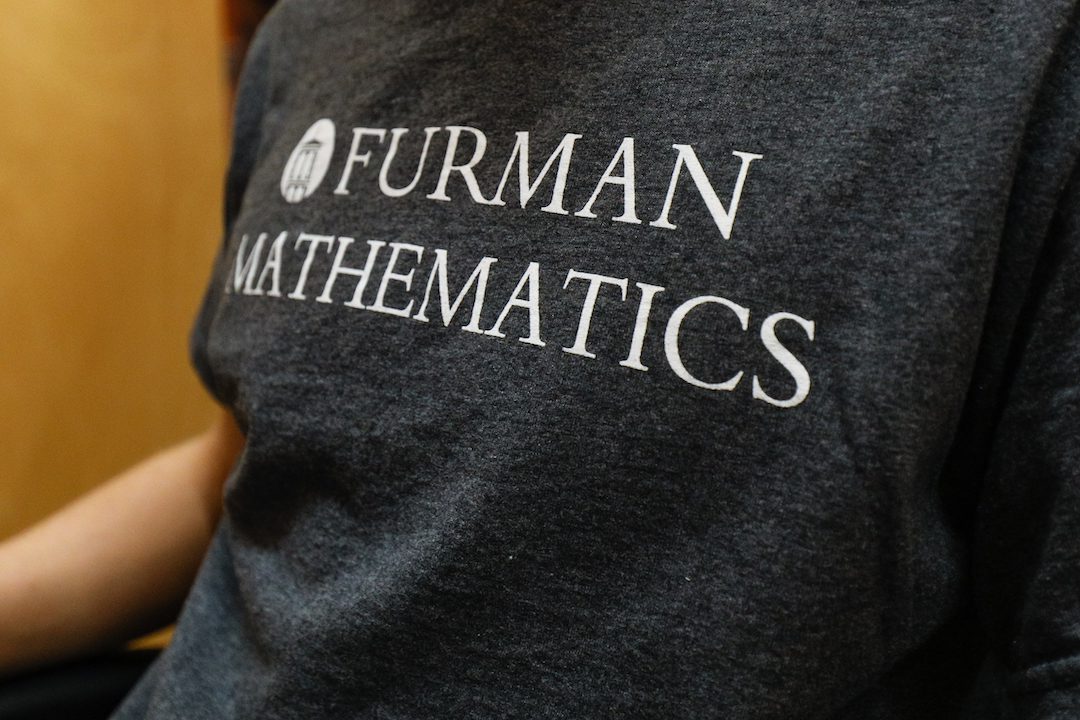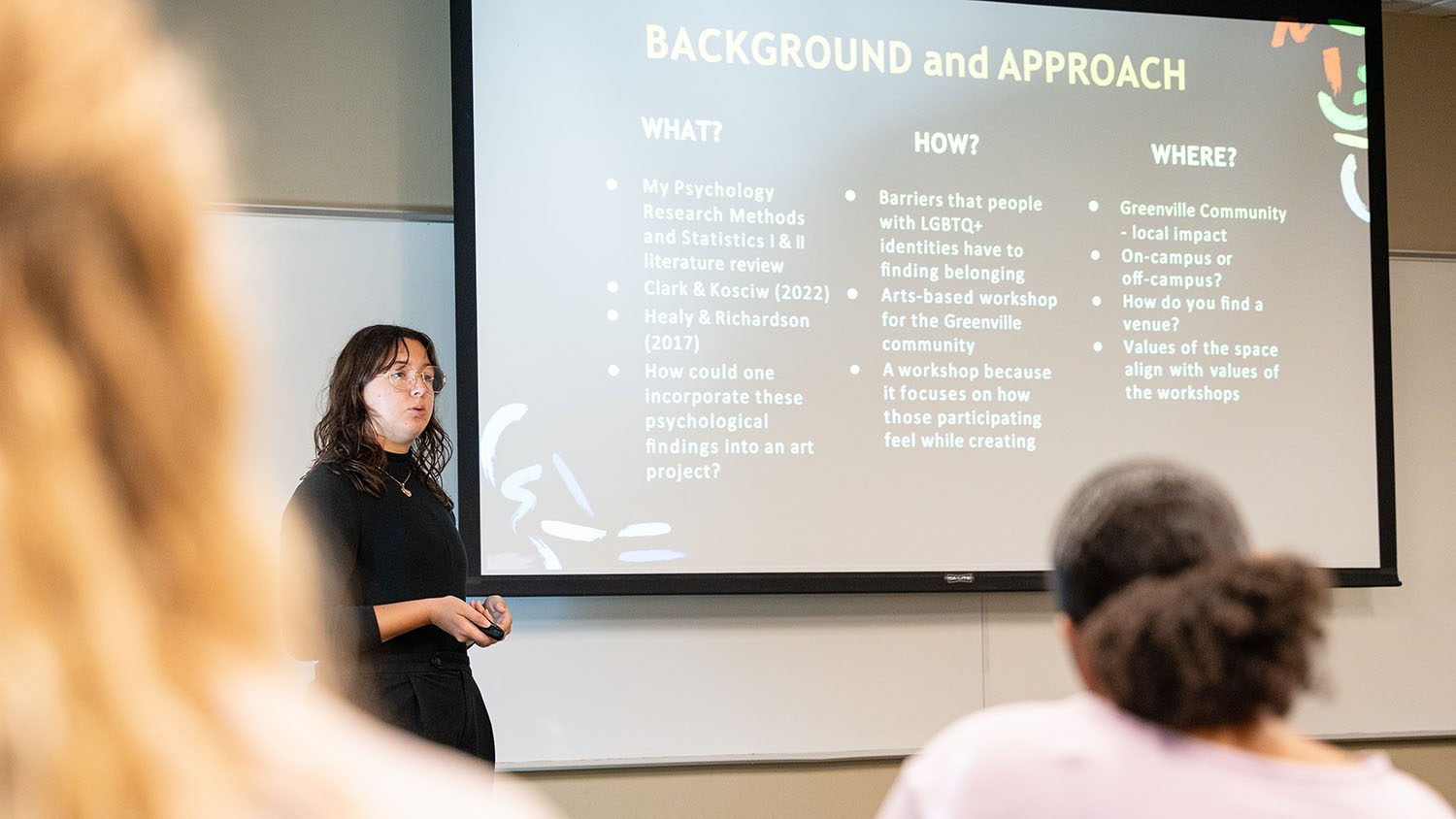Program Overview
Table of Contents
What is a mathematics degree?
A Bachelor of Science or a Bachelor of Arts in mathematics is an undergraduate degree awarded after studying at the college level. Students who are interested in mathematics are motivated by finding, exploring and explaining phenomena about abstract objects, such as numbers (number theory and algebra), shape (geometry and topology), change (calculus and analysis) and chance (probability and statistics).
Why study mathematics at Furman?
Furman University is a private liberal arts and sciences university dedicated to developing identity and purpose, agency and integrity, intellectual curiosity, and civic and global engagement in its students. Furman students work closely with faculty, gaining the opportunity to find uncommon connections between academic disciplines and their passions. Plan a visit to Furman’s beautiful campus or start your application today.
How will you learn?
As a mathematics student, you will have the opportunity to study on campus, within the community and abroad. While on campus, your studies will take you from the classroom to the Mathematics Resource Center, the Sanders Science Library and a host of other onsite resources. Your work will include foundational courses in calculus, linear algebra and the art of reading and writing mathematics. You will experience capstone courses in advanced algebra and analysis. Along the way, you can take elective courses in number theory, graph theory and combinatorics, probability theory and geometry. Our small class sizes ensure that you will receive attention from our faculty throughout your journey. Beyond the classroom, our mathematics majors are encouraged to participate in high-impact experiences, such as summer research and internships. Your studies will also lead you from the campus to the community and beyond. For example, our department offers two study-away experiences: Math and the Mouse (Disney World, Orlando, Florida) and Breaking Codes and Winning Wars (Washington, D.C., and England).
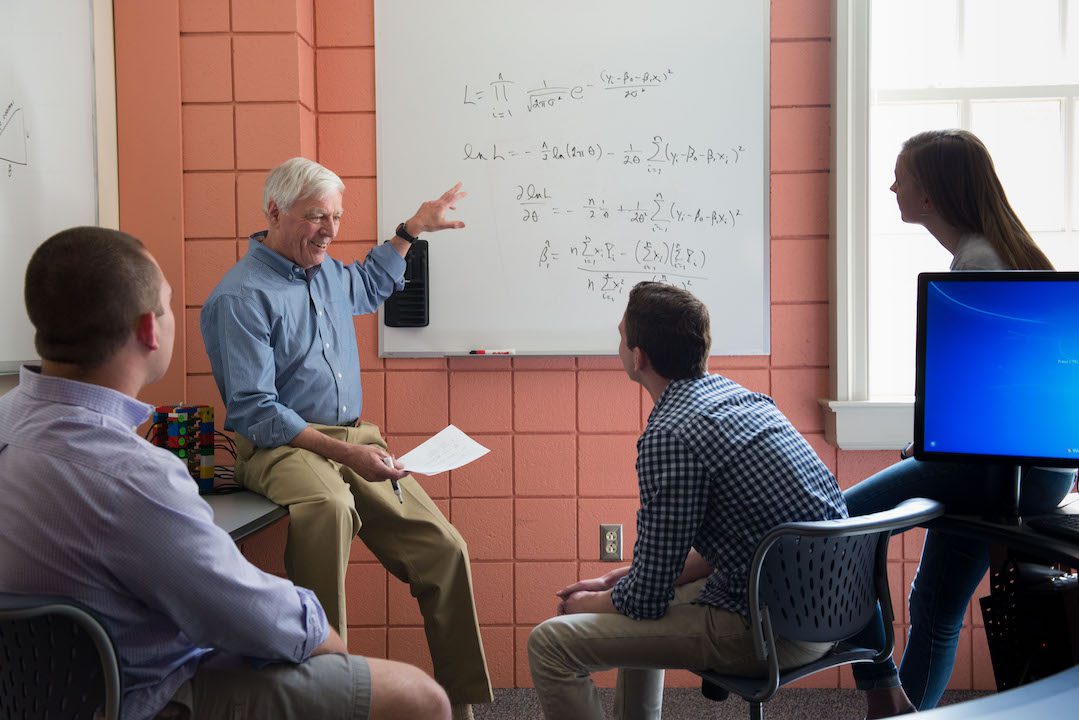
Careers for mathematics majors
As a mathematics student, you will learn to think creatively and reason quantitatively; you will develop the communication and critical thinking skills that translate to an array of postgraduate opportunities. Many of our graduates obtain advanced degrees in mathematics and allied fields. Others find employment in data analysis, project management, health care and teaching.

Specific occupations include:
- Data scientist
- Project analyst
- Financial manager
- Statistician
- Software engineer
- Physical therapist
- Operations researcher
- High-energy nuclear physicist
Featured mathematics courses
-
89%participated in a high-impact experience
-
33%completed an internship
-
61%were double majors
-
50%studied away
What our students say
Our faculty
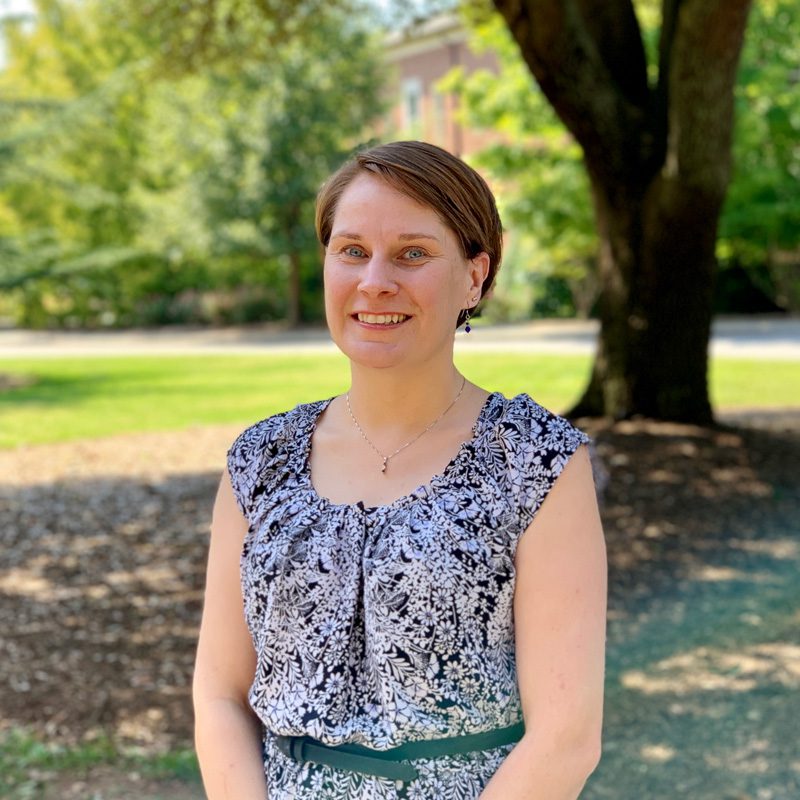
Lori Alvin

Jordan Bounds

Liz Bouzarth

Roy Bower
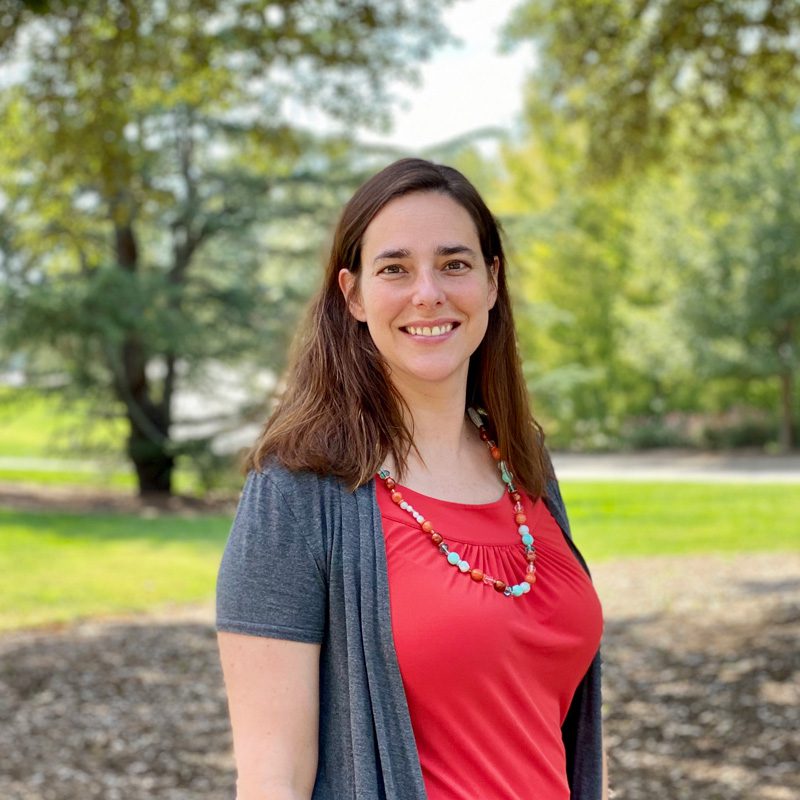
Sarah Frick

John Harris

Casey Hawthorne

Kevin Hutson

Thomas Lewis

Christian Millichap
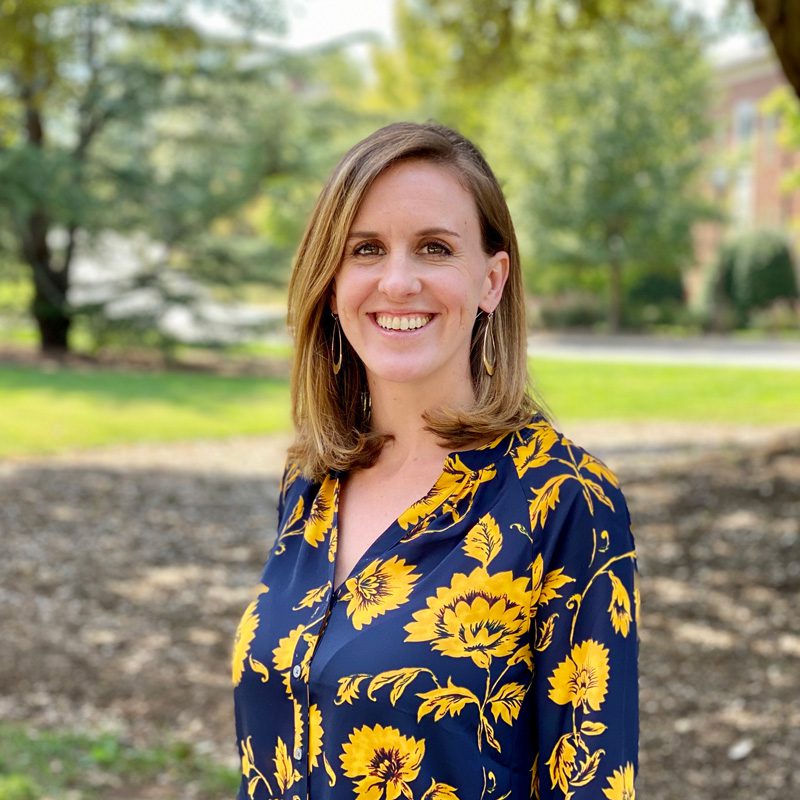
Grace Stadnyk

Mark Woodard

Mathematics Major F.A.Q.
Studying mathematics involves critical thinking, problem-solving, communication and collaboration. These are vital skills for entering the job market or preparing yourself for graduate school. Mathematics graduates have gone on to thrive in fields such as computer science, business analysis, data analysis, actuarial science, consulting, biostatistics, chemistry, engineering, law and medicine. They have worked as practitioners across health care, the law, the sciences and consultancies.
Graduates with an undergraduate mathematics degree earn an average yearly salary of $57,720 a year or more, according Ziprecruiter ¬ although some annual salaries have been recorded as high as $123,500 or more.
Yes, it is possible to major in mathematics and another discipline. A recent survey of our students found that 61% of mathematics majors are double majors.
The mathematics B.A. and B.S. at Furman are typically four-year programs.
